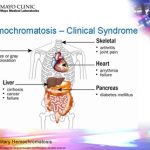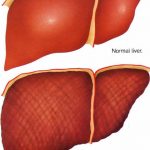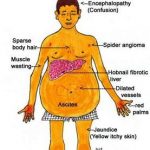What Is?
What is Hepatorenal Syndrome?
What is Hepatorenal Syndrome? Hepatorenal syndrome (often abbreviated HRS) is a life-threatening medical condition that consists of rapid deterioration in kidney function in individuals with cirrhosis or fulminant liver failure. HRS is usually fatal unless a liver transplant is performed, although various treatments, including dialysis, can help over the short term. While HRS can affect…
Read MoreWhat is Hepatitis D Virus?
What is Hepatitis D Virus? Hepatitis delta virus (HDV) causes hepatitis D or delta hepatitis. HDV is only found in people who carry the hepatitis B virus (HBV). HDV is transmitted through skin; tattooing or body piercing, sexually or through contact with infected blood or blood products. Chronic HBV carriers are at a risk for…
Read MoreWhat is Hepatic Encephalopathy?
What is Hepatic Encephalopathy? Hepatic coma; Encephalopathy – hepatic Hepatic encephalopathy is a worsening of brain function that occurs when the liver is no longer able to remove toxic substances in the blood. Causes, incidence, and risk factors Hepatic encephalopathy is caused by disorders that affect the liver. These include disorders that reduce liver function…
Read MoreWhat is Hemochromatosis?
What is Hemochromatosis? Hemochromatosis is a disorder of iron regulation – it is an inherited disease where excess “free” iron is deposited in various organs including the liver. It is ‘free’ because it is not bound tightly to carrier proteins which would otherwise prevent it from damaging cells. The problem is that because of the…
Read MoreWhat is HCV (Hepatitis C Virus)?
What is HCV (Hepatitis C Virus)? When we are infected with the Hepatitis C virus, our body will start to produce antibodies to try to destroy it. The majority of the time the antibodies will fail in trying to identify the Hepatitis C virus. HCV infection will then remain with us for a very long…
Read MoreWhat is Liver Fibrosis?
What is liver fibrosis? Liver fibrosis is the scarring process that represents the liver’s response to injury. In the same way as skin and other organs heal wounds through deposition of collagen and other matrix constituents so the liver repairs injury through the deposition of new collagen. Over time this process can result in cirrhosis…
Read MoreWhat is Cryptogenic Cirrhosis?
What is Cryptogenic Cirrhosis? Put simply – ‘unknown’. Cryptogenic cirrhosis (cirrhosis due to unidentified causes) is a common reason for liver transplantation. It is termed cryptogenic cirrhosis because for many years doctors have been unable to explain why a proportion of patients developed cirrhosis. Doctors now believe that cryptogenic cirrhosis is due to NASH (nonalcoholic…
Read MoreWhat is Creatinine?
What is Creatinine? Creatinine: A chemical waste molecule that is generated from muscle metabolism. Creatinine is produced from creatine, a molecule of major importance for energy production in muscles. Approximately 2% of the body’s creatine is converted to creatinine every day. Creatinine is transported through the bloodstream to the kidneys. The kidneys filter out most…
Read MoreWhat is Cirrhosis?
What is Cirrhosis? Cirrhosis is a condition of the liver. It is marked by scarring of liver tissues that results in blocked blood flow and impaired liver function.Cirrhosis is one of the leading causes of death by disease. Sadly, it kills more than 25,000 people per year. The liver has several critical jobs, including the…
Read MoreWhat is Chronic Liver Disease?
What is Chronic Liver Disease? Chronic liver disease is marked by the gradual destruction of liver tissue over time. Several liver diseases fall under this category, including the following: cirrhosis of the liver fibrosis of the liver What is cirrhosis of the liver? Cirrhosis is the 12th leading cause of death in the United States,…
Read More








